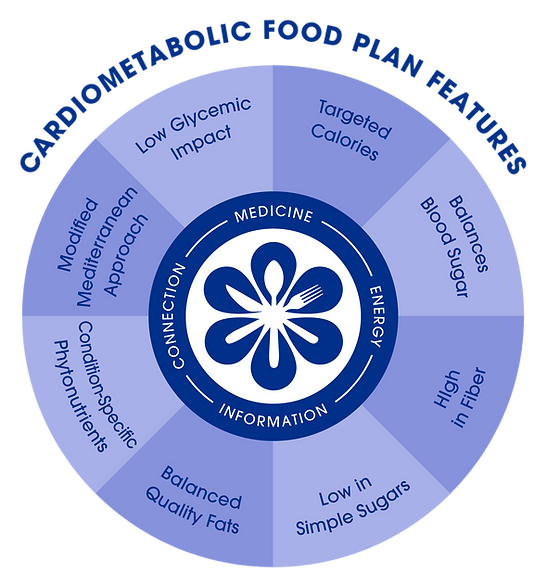Cardiometabolic Diet
Cardiometabolic diseases, such as heart disease, stroke, and type 2 diabetes, have become increasingly prevalent in recent years. These chronic conditions have a significant impact on individuals’ quality of life, and they also place a considerable burden on healthcare systems worldwide. However, research has shown that diet can play a pivotal role in preventing and managing cardiometabolic diseases. One dietary approach that has gained attention is the cardiometabolic diet. In this article, we will explore this diet in detail and discuss its potential benefits for individuals at risk of or already diagnosed with cardiometabolic diseases.
Understanding Cardiometabolic Diseases
Before delving into the intricacies of the cardiometabolic diet, it is essential to understand the conditions it aims to address. Cardiometabolic diseases encompass a range of disorders that affect the cardiovascular system, including the heart and blood vessels. These conditions often occur together and share common underlying risk factors, such as obesity, high blood pressure, high blood sugar levels, and abnormal cholesterol levels.
Cardiometabolic diseases are typically a result of an unhealthy diet, sedentary lifestyle, smoking, and genetic predisposition. They can lead to severe health complications and significantly increase the risk of premature death. However, adopting appropriate dietary and lifestyle modifications can help mitigate these risks and improve overall health outcomes.
The Cardiometabolic Diet: An Overview
The cardiometabolic diet is a comprehensive dietary approach that focuses on consuming nutrient-rich foods and minimizing or avoiding foods that contribute to cardiometabolic diseases. It combines elements of several well-established diets, including the Mediterranean diet, DASH (Dietary Approaches to Stop Hypertension) diet, and the traditional Asian diet.
The core principles of the cardiometabolic diet include:
1. Emphasizing plant-based foods: The diet encourages the consumption of fruits, vegetables, whole grains, legumes, nuts, and seeds. These foods are rich in fiber, vitamins, minerals, and antioxidants, which help protect against cardiometabolic diseases.
2. Prioritizing lean proteins: Lean sources of protein, such as fish, poultry, legumes, and tofu, are preferred over red and processed meats. These protein sources are lower in saturated fat and cholesterol, making them healthier choices for cardiovascular health.
3. Reducing saturated and trans fats: Foods high in saturated and trans fats, such as fatty meats, fried foods, pastries, and processed snacks, are limited. Instead, healthy fats from sources like avocados, olive oil, nuts, and seeds are encouraged.
4. Limiting added sugars and refined carbohydrates: Sweetened beverages, sugary snacks, and refined grains are restricted, as they can lead to elevated blood sugar levels and weight gain, both of which contribute to cardiometabolic diseases.
5. Encouraging moderate alcohol consumption: For individuals who consume alcohol, moderate intake is recommended. This typically means no more than one alcoholic drink per day for women and up to two drinks per day for men.
6. Increasing physical activity: Regular exercise is an integral part of the cardiometabolic diet. Engaging in moderate-intensity aerobic activity, such as brisk walking, for at least 150 minutes per week is recommended.
7. Practicing mindful eating: Paying attention to hunger cues, eating slowly, and savoring meals can help prevent overeating and promote better digestion.
Potential Benefits of the Cardiometabolic Diet
Numerous studies have examined the impact of the cardiometabolic diet on various health outcomes. Here are some potential benefits associated with following this dietary approach:
1. Reduced cardiovascular risk: The cardiometabolic diet’s emphasis on plant-based foods, lean proteins, and healthy fats can help lower blood pressure, improve cholesterol levels, and reduce the risk of heart disease and stroke.
2. Better blood sugar control: By avoiding added sugars and refined carbohydrates, the diet can help regulate blood sugar levels and prevent or manage type 2 diabetes.
3. Weight management: The nutrient-dense nature of the cardiometabolic diet, coupled with its focus on portion control and moderate calorie intake, can support healthy weight loss and weight maintenance.
4. Improved gut health: The abundance of fiber-rich foods in the diet promotes a healthy gut microbiome, which is essential for overall digestive health and may have additional beneficial effects on cardiometabolic diseases.
5. Enhanced overall well-being: Eating a balanced, nutrient-rich diet can boost energy levels, improve mood, and enhance overall well-being.
Getting Started with the Cardiometabolic Diet
If you’re interested in adopting the cardiometabolic diet, here are a few steps to help you get started on your journey:
1. Consult a healthcare professional: Before starting any new dietary regimen, it’s crucial to speak with a healthcare professional, particularly if you have existing health conditions or take medications.
2. Stock up on nutritious foods: Fill your pantry and refrigerator with a variety of fruits, vegetables, whole grains, lean proteins, healthy fats, and legumes. Having these ingredients readily available will make it easier to prepare cardiometabolic-friendly meals.
3. Plan your meals: Take some time each week to plan your meals and snacks. This will help ensure you have balanced, nutritious options available and can avoid relying on unhealthy convenience foods.
4. Experiment with recipes: Explore new recipes that align with the cardiometabolic diet principles. There are numerous online resources and cookbooks available that provide delicious and satisfying meal ideas.
5. Gradual changes are key: Instead of making drastic changes overnight, aim for gradual dietary modifications. This approach is more sustainable and allows your taste buds and digestion to adapt gradually.
In conclusion, the cardiometabolic diet is a comprehensive dietary approach that focuses on consuming nutrient-rich foods while minimizing or avoiding those that contribute to cardiometabolic diseases. By incorporating the principles of this diet, individuals at risk of or already diagnosed with cardiometabolic diseases can make positive changes to their overall health and well-being. Remember to consult a healthcare professional before making any significant dietary changes and to personalize the diet according to your individual needs and preferences.







